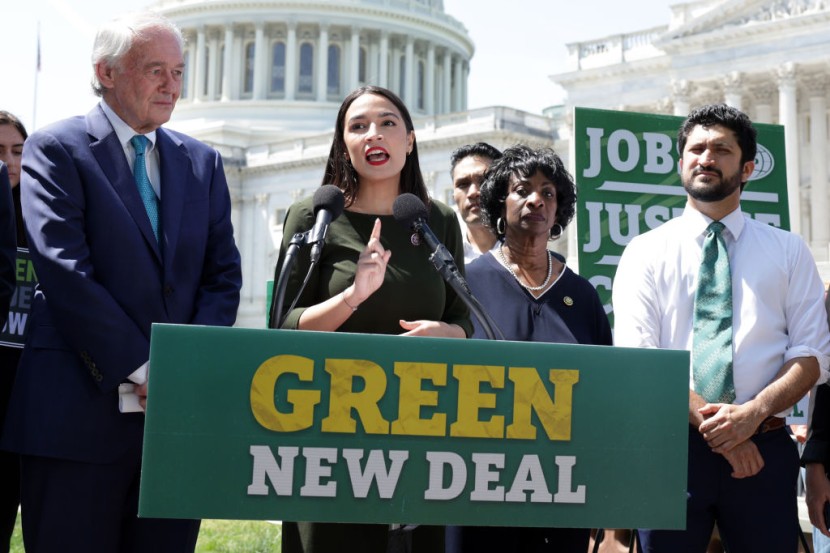Rep. Alexandria Ocasio-Cortez, D-N Y, will not run for the senate in 2024, and primary Sen. Kirsten Gillibrand, D-N.Y.
In January, Gillibrand announced her re-election amid speculations that she could face a primary challenge from more left-wing party members in the deep-blue state, as reported by Fox News.
Since then, no prominent challenger has been announced. Reps. Jamaal Bowman, D-N.Y, and Ritchie Torres, D-N Y., also said they have no plans to enter the race.
In 2021, Ocasio-Cortez was asked if she would challenge Sen. Chuck Schumer, D-N.Y, which initially, she did not rule out but later declined to do.
A Rising Star
It seems that Ocasio-Cortez has no plans to challenge any incumbent Democratic senator in New York in the upcoming elections. However, as a rising star in the party and a vocal advocate for progressive policies, she may still play a prominent role in shaping the agenda and endorsing candidates in other races.
The absence of a strong primary challenger to Gillibrand may also reflect the senator's efforts to align herself with the progressive wing of the party and distance herself from her more moderate past.
As the Democratic Party continues to evolve and shift towards more progressive policies, there has been speculation about potential primary challenges against incumbent senators who may not fully align with this new direction. However, as seen in New York's upcoming Senate race, these challenges have yet to materialize.

While Ocasio-Cortez has stated that she will not be challenging Gillibrand or Schumer in their respective races, her influence within the party cannot be overlooked. As a prominent voice for progressive causes such as Medicare-for-All and climate action, her endorsement can carry significant weight among voters.
Furthermore, even without a strong primary challenger in New York's Senate race thus far, it is clear that progressives are still pushing for change within the party. This pressure from grassroots activists has forced many established politicians to adopt more left-leaning positions on healthcare and income inequality.
The Lack of Primary Challengers
In this way, while no major shakeups may occur during this election cycle in terms of incumbents being unseated by up-and-coming progressive candidates, the impact of these voices is already being felt throughout American politics writ large.
One potential reason for the lack of primary challenges against incumbent senators is the high cost and difficulty of running a successful campaign. Incumbents often have significant fundraising advantages, name recognition, and established networks that make it challenging for newcomers to compete.
However, this does not mean progressives are giving up on their push for change within the Democratic Party. Instead, many activists are focusing their efforts on grassroots organizing and building coalitions with like-minded individuals to pressure elected officials into adopting more progressive policies.
In addition to Ocasio-Cortez's influence in New York's Senate race, other prominent progressive voices, such as Senator Bernie Sanders, continue to advocate for policies like Medicare-for-All and free college tuition across the country. These ideas may still be considered fringe by some establishment Democrats, but they have gained significant traction among younger voters who see them as essential components of a just society.
© 2025 HNGN, All rights reserved. Do not reproduce without permission.








